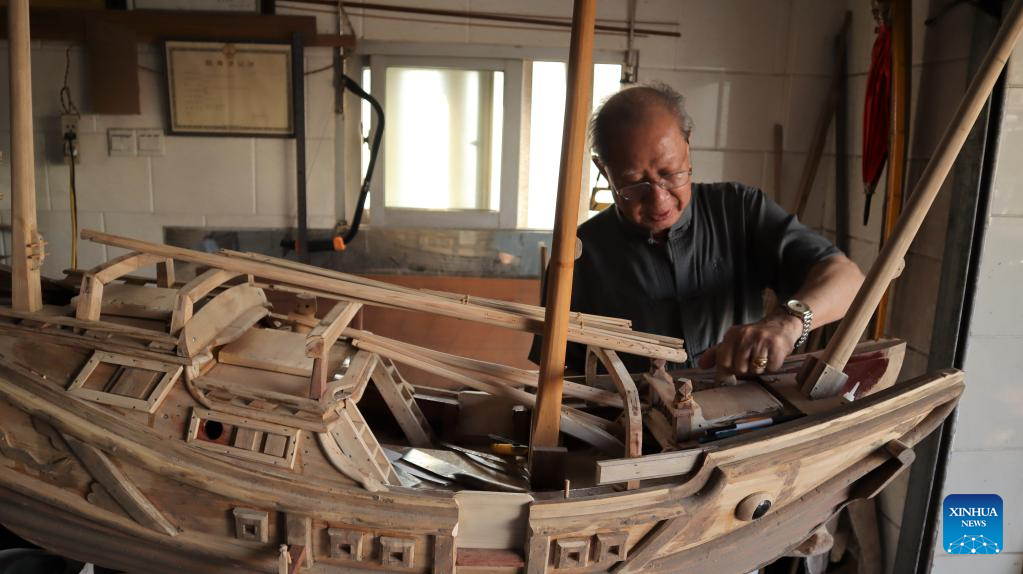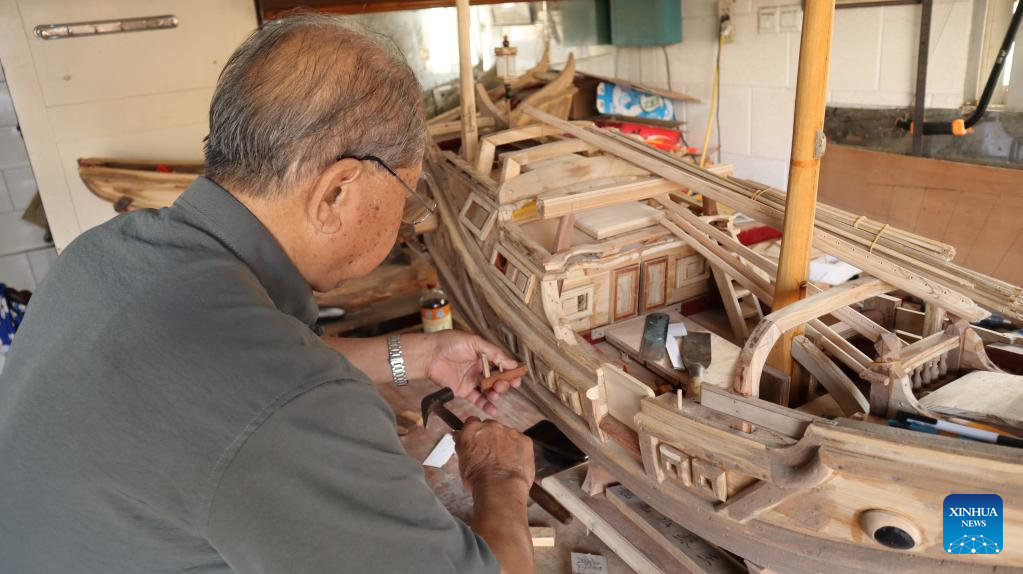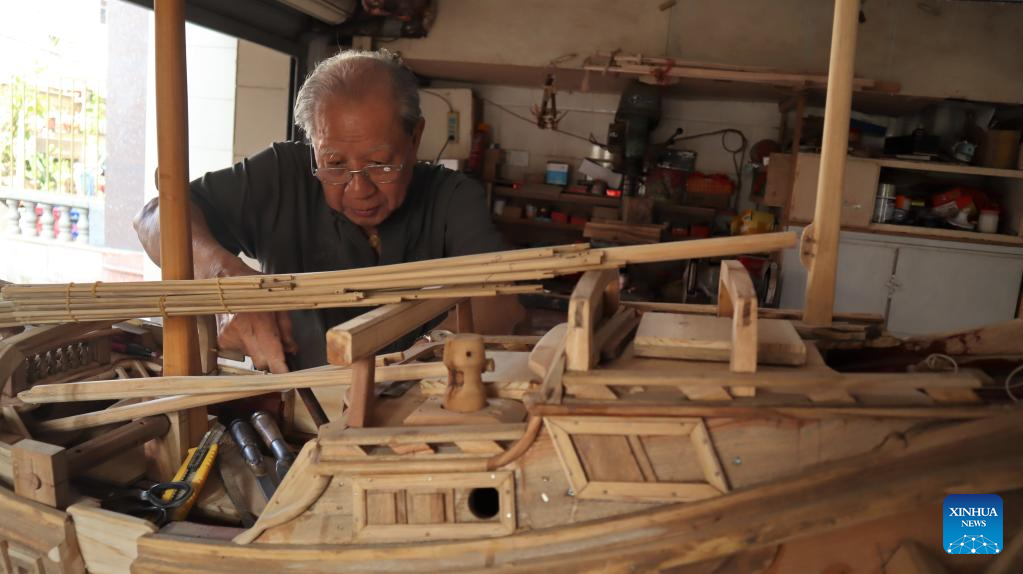
Zhang Guohui, an inheritor of the watertight-bulkhead technology of Chinese junks, makes a model boat at a workshop in Chongwu Town, Hui'an County of Quanzhou, southeast China's Fujian Province, April 29, 2022. (Xinhua/Zhao Xuetong)
FUZHOU, June 22 (Xinhua) -- Zhang Guohui has been making ships, from over 30-meter-long vessels to meters-long model boats, for more than six decades.
"Every minute, I keep thinking about making it perfect," said the 77-year-old man, an inheritor of the watertight-bulkhead technology of Chinese junks.
Hailing from a poor family in a fishing town in east China's Fujian Province, Zhang started to make a living by fishing on the open seas when he was only 16, which is where he developed a keen interest in making boats.
Being a fast learner, Zhang was later sent to shipyards in the cities of Quanzhou and Xiamen of Fujian where he received training and became a master of traditional Chinese junks and gained fame because of his consummate craftsmanship for the construction of vessels.
Due to the development of the modern shipbuilding industry, the need for large wooden vessels decreased sharply. Zhang began constructing model ships using his 20 years of shipbuilding skills.
"I had feared that the traditional skills would die someday. Fortunately, I met Wang Lianmao, the former curator of Quanzhou Maritime Museum, in 2007," said Zhang. After their meeting, he started to renovate old ships and make model ships for the museum.
In 2010, the watertight-bulkhead technology of Chinese junks was inscribed on the List of Intangible Cultural Heritage in Need of Urgent Safeguarding by UNESCO.
Invented in the Tang Dynasty (618-907) and widely adopted after the Song Dynasty (960-1279) in Fujian, the technology permits the construction of ocean-going vessels with watertight compartments. If one or two cabins are accidentally damaged in the navigation process, seawater will not flood the other cabins and the vessel will remain afloat.
Thanks to dedicated craftsmen like Zhang, the technology can be inherited and promoted.
"The renovated ancient ships are the historical witnesses of Quanzhou as a maritime hub of the East and Southeast Asia trade network," said Zhang, who has built and renovated more than 20 model ships for the museum.
"Every time I see my works in the museum, I feel excited," he said, adding that it is meaningful for the younger generations, who can learn from exhibitions of those ancient ships that their ancestors had advanced shipbuilding technology at an early stage.
In 2016, Zhang was appointed as an ancient model ship researcher at the museum and was invited to deliver lectures to university students.
"Students are intrigued by the craftsmanship of shipbuilding, and many of them even came to my workshop to learn about boat making during holidays. As long as I'm alive, I'll keep passing on the heritage," Zhang said. ■

Zhang Guohui, an inheritor of the watertight-bulkhead technology of Chinese junks, makes a model boat at a workshop in Chongwu Town, Hui'an County of Quanzhou, southeast China's Fujian Province, April 29, 2022. (Xinhua/Zhao Xuetong)

Zhang Guohui, an inheritor of the watertight-bulkhead technology of Chinese junks, makes a model boat at a workshop in Chongwu Town, Hui'an County of Quanzhou, southeast China's Fujian Province, April 29, 2022. (Xinhua/Zhao Xuetong)



